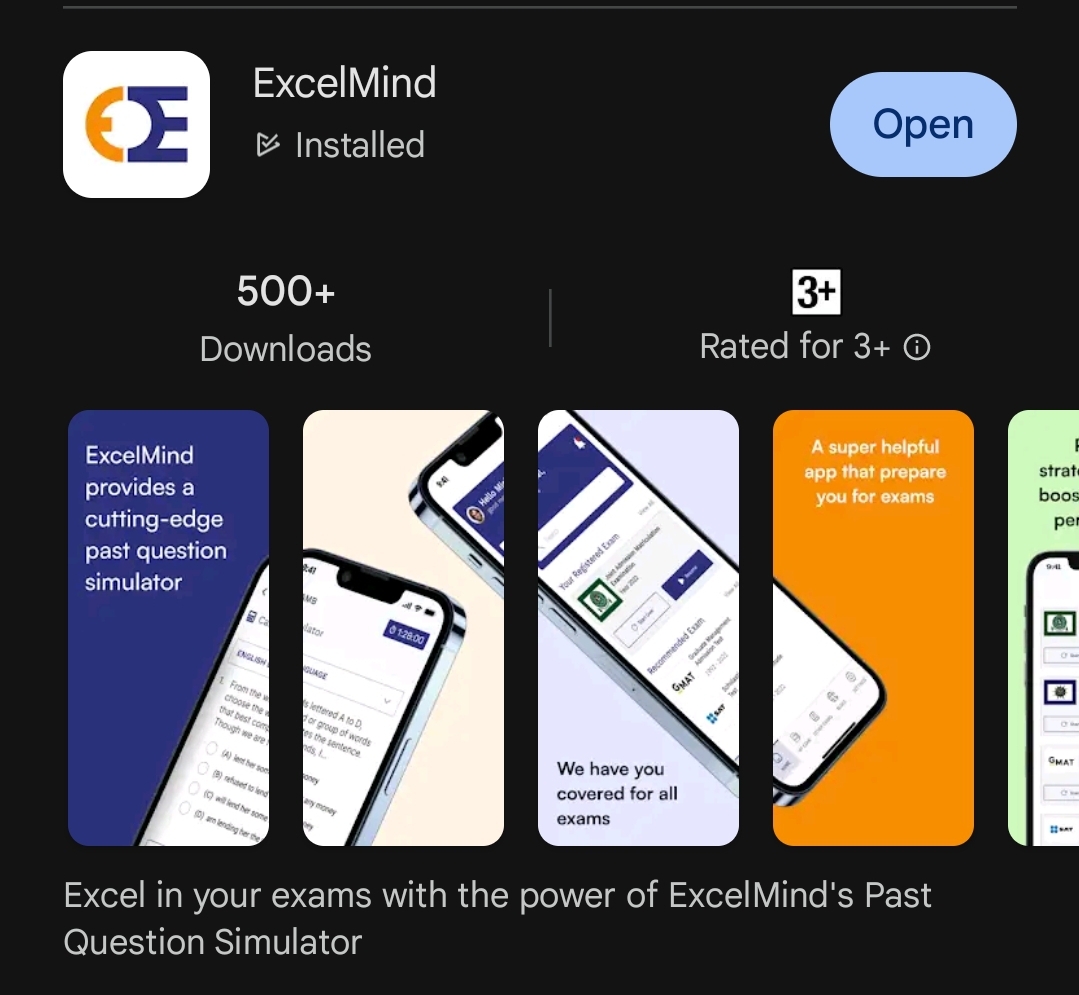Physical Address
304 North Cardinal St.
Dorchester Center, MA 02124

What if the only thing standing between you and the spotlight is knowing the right WAEC Subjects for Theatre Arts? Your dream of dazzling audiences, telling unforgettable stories, and making your mark on stage begins with mastering these essential subjects.
Don’t let uncertainty hold you back, your Dream Deserves to Shine. The right guidance and the game-changing tools from the ExcelMind app can help you pass the WAEC Subjects for Theatre Arts and open the door to your future. Let’s get in and make your dream a reality.

Read Only: 6 WAEC Subjects for International Relations
Theatre Arts is the study of performing arts, which includes acting, directing, scriptwriting, stage design, and more. It is a creative course that allows you to express yourself and tell stories through speech, music, dance, and visual arts. It’s not just about acting; Theatre Arts prepares you for a wide range of careers in entertainment, education, and even media.

If you’re passionate about performing and storytelling, Theatre Arts is the perfect course. But first, you need to meet the academic requirements, starting with your WAEC subjects.
To study theatre arts at any Nigerian university, you need to have at least five credits for your WAEC exams. Below are the core subjects you must pass:
These subjects will help you develop the skills you need for Theatre Arts, such as critical thinking, creativity, and storytelling.
It’s important to know the difference between core and elective subjects. Core subjects like English and Literature in English are compulsory for all students. Elective subjects, such as Fine Arts or CRS, allow you to go through areas that can enhance your creativity and understanding of Theatre Arts.
For example, Fine Arts can help you learn about costume design and stage decoration, while CRS or IRS can help you understand cultural and moral themes in drama.
Your WAEC subjects play a huge role in your university admission. Universities in Nigeria use your WAEC results, alongside JAMB scores, to determine your eligibility for Theatre Arts. Without the right subject combination, you risk being denied admission, no matter how passionate you are.
Preparing for WAEC can feel overwhelming, but it doesn’t have to be. You need a solid plan, access to the right study materials, and consistent practice. Here’s where most students struggle:
This is why the ExcelMind app is your best friend for WAEC success.
The ExcelMind app is a powerful educational tool designed to help students like you prepare for WAEC exams and achieve your academic goals. Here’s how it works:

With the ExcelMind app, you can connect with experienced tutors who can answer your questions and provide tips for WAEC success.
Harness the power of AI to receive personalized study plans and predictive analytics that identify your strengths and areas for improvement, ensuring a targeted and effective preparation for your Theatre Arts exams.
Most things you read about WAEC subjects for Theatre Arts ignore the importance of practical skills. Fine Arts is often seen as optional, but it’s crucial for students who want to excel in Theatre Arts.
Skills like drawing, painting, and stage design are part of the creative process. The ExcelMind app includes tutorials on Fine Arts, helping you develop these practical skills alongside your academic studies.
If you’re missing one or more of the WAEC subjects for Theatre Arts, don’t panic. You can still:
The ExcelMind app also provides guidance on alternative pathways to admission, so you’re never left in the dark.
Every subject you take for WAEC contributes to your future career in Theatre Arts:
By mastering these subjects, you’re not just passing WAEC, you’re building a foundation for your dream career.
See Also: 15 Ways to Pass WAEC Without Stress
Your journey to becoming a star in Theatre Arts starts with passing your WAEC exams. Don’t leave your future to chance, download the ExcelMind app today and start preparing with confidence. Whether you need help with English, Literature, or Fine Arts, ExcelMind has everything you need to succeed.
Click here to download the ExcelMind app now and make your dream of studying Theatre Arts a reality.
To study Theatre Arts, you need to pass certain subjects in your WAEC exams. These typically include:
English Language (mandatory)
Mathematics
Literature in English
Civic Education
Economics
Government
IRS/CRS
Marketing
Commerce
These subjects will give you the foundation needed for a successful career in Theatre Arts. Make sure to check specific university requirements, as some may vary slightly.
To apply for Theatre Arts in a Nigerian university, the general O’level requirements are:
Five SSCE credit passes, including English Language (mandatory)
Literature in English (mandatory)
Mathematics
Government or History
Two other relevant Arts subjects (such as Economics, CRS/IRS, Marketing, etc.)
Theatre as a subject is the study of the art of live performance, including acting, directing, stage design, and scriptwriting. It explores the history, techniques, and various forms of drama and performance, providing students with both practical and theoretical knowledge.
In a Theatre Arts program, students learn about dramatic literature, performance techniques, stage management, production design, and the cultural significance of theatre. The subject allows students to express creativity through acting and storytelling while also developing skills in critical thinking, collaboration, and communication.
The cut-off mark for Theatre Arts varies by university and can change each year depending on the number of applicants and overall performance. However, most universities in Nigeria typically set a cut-off mark between 180 and 200 for Theatre Arts.
It’s important to note that meeting the cut-off mark does not guarantee admission, as other factors, such as your O’level results, JAMB scores, and sometimes an audition or interview, may be considered.
Make sure to check the specific requirements for the university you’re applying to, as some may have higher cut-off marks or additional criteria for Theatre Arts candidates.
In Nigeria, it typically takes four years to complete a degree in Theatre Arts at most universities. However, the duration can vary depending on factors like the university, the student’s academic progress, and whether the student participates in any internships or extra programs.
For students pursuing a Direct Entry (DE) admission with prior qualifications like a diploma, the course might take three years.